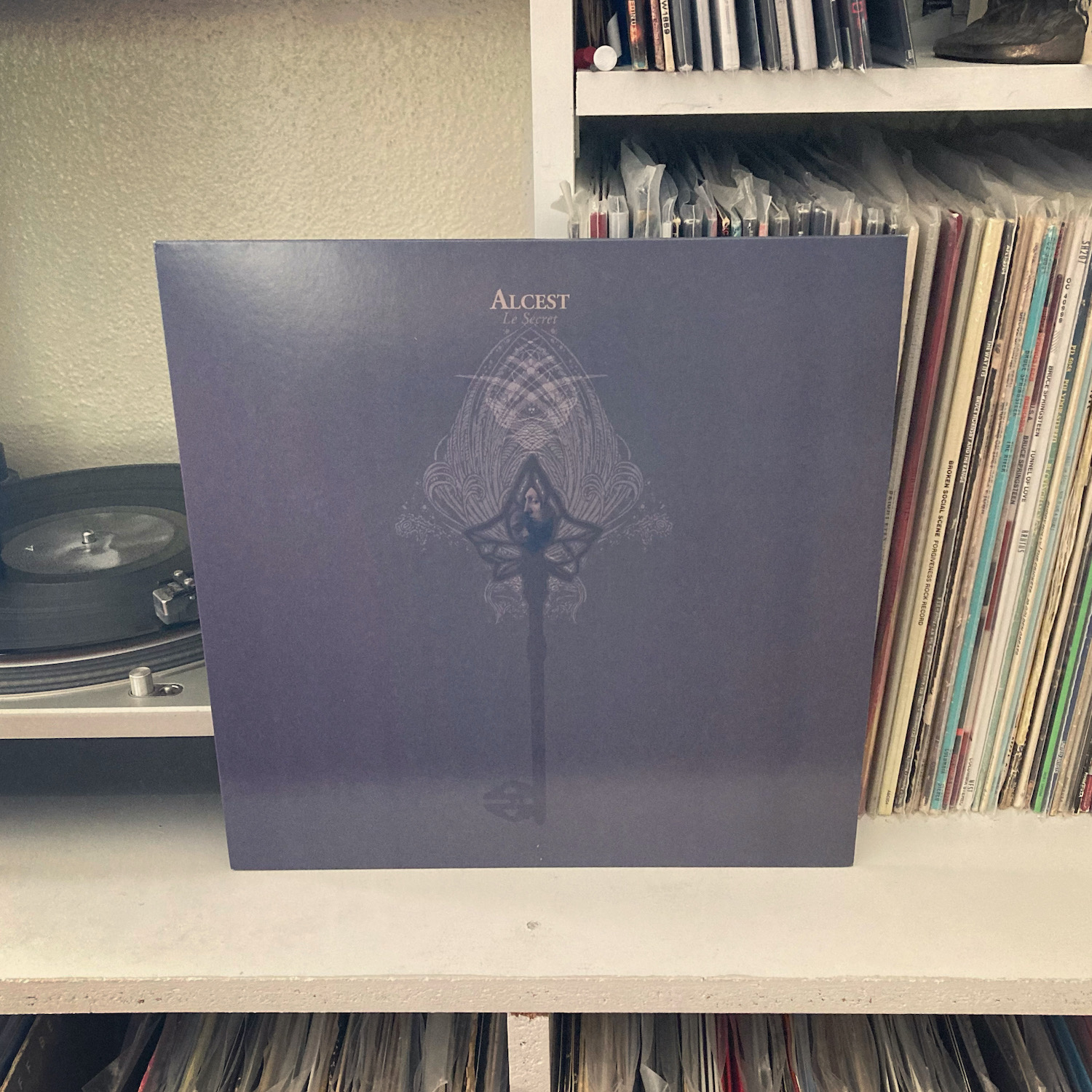 Even legends have to start somewhere. Through years of bouncing around the European black metal scene, Neige was dissatisfied with the ability of the kvlt to properly express what he had to say. Between other projects, he spent his time crafting otherworldly overtures that transcended the narrow confines of traditional black metal. In 2005, he released a pair of tracks under the name Alcest, a name he had used for another project as a teenager.
Even legends have to start somewhere. Through years of bouncing around the European black metal scene, Neige was dissatisfied with the ability of the kvlt to properly express what he had to say. Between other projects, he spent his time crafting otherworldly overtures that transcended the narrow confines of traditional black metal. In 2005, he released a pair of tracks under the name Alcest, a name he had used for another project as a teenager.
But Le Secret, that first EP, sounded nothing like the scorched-earth, burnt-church trad-black of his previous band. In fact, it didn’t sound much like anything else that had been released up to that point. The 2011 rerelease, reissued upon the success of the incredible Écailles de Lune, features rerecorded versions of each track with more resources to fulfill his original vision. But even in the face of the clearer versions, this EP demonstrates that Neige’s idea of what he meant Alcest to be has been unchanged from the beginning.
Despite his ubiquity within the black metal scene, Neige’s tastes have always gravitated toward the softer side. He grew up listening to bands like The Cure, My Bloody Valentine, Mogwai, and Sigur Ros—acts rich in both tender sentiment and lush atmosphere. Those influences are not hidden on this record—everything is wrapped up in a warm blanket of haze much like those acts.
The clean guitars are bright and chimey, employing a generous amount of chorus. The distorted sections are warped with amp-blowing fuzz that sounds more womblike than abrasive. His vocals—where there are vocals—are treated like another color of the sonic pallete. They are mostly clean, softly cooed and buried in the mix. He screams, but rarely, and it sounds more like a burst of joyous white noise than the satanic shrieks of most black metal vocalists. There are pillows of synth pads that gently support the rest of the instruments, occasionally switching to a string setting for a more cinematic feel.
Even when the instruments do shift into a black metal blast of distorted tremolo picking and double kick drums, it’s usually in a major key. The sounds are familiar to metal fans, but they sound more triumphant than violent. In fact, it sounds practically joyful—an emotion that is not very common in black metal circles. There are a few moments of darkness, but they sound more desperate than angry. Somehow, Neige was able to create an album that eschewed the conventions of black metal without completely abandoning it. It’s still very identifiably black metal, but it feels much different than anything else released under that umbrella until that point.
What’s especially remarkable is how little editing was done between the 2005 and 2011 versions. The structure of the compositions are almost entirely unchanged, barring a few extra seconds of atmosphere here and there and slight variations in pitch and tempo (the rerecorded versions are a step higher than the originals). In fact, the differences are largely technical. The mix of the 2005 version is a bit muddy and harsh, and the drums are sometimes buried in the rest of the noise. A few transitions between sections are abrupt, betraying what was probably a clumsy unfamiliarity with the recording program (having tried myself to outsmart the limitations of GarageBand, I understand that struggle). At times, it sounds like the guitar channels are clipping, leading to the wrong kind of distortion. And while Neige is a more-than-passable drummer, there’s no mistaking that Winterhalter is able to handle the gymnastic parts with far more ease.
But with cleaner performances and a tighter mix, the 2011 tracks sound almost indecipherable from Alcest’s later works. There are only a couple moments that sound jarring in the context of Alcest’s palette—a rhythmic shift into an almost punk drumbeat in “Le Secret” at 9:45 and a burst of guitar sweeps 7:42 into “Élevation.” But each moment is brief, and doesn’t stray too far from the voice of the project. In fact, the following full length, Souvenirs d’un Autre Monde sounds a little less like Alcest’s musical center than this does. That’s not a knock against that record, which is similarly gorgeous—just testament to Neige’s clarity of vision on this EP.